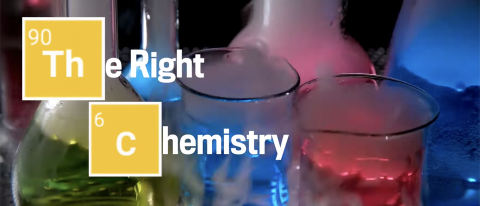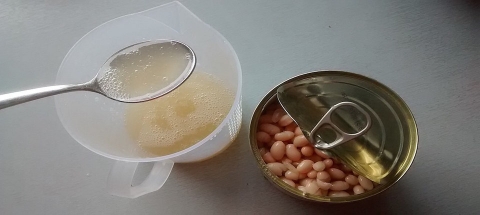If you ask Unilever, producers of “Hellman’s Real Mayonnaise”, which is the market leader in the 11.3 billion dollar a year global mayonnaise industry, it’s when the product contains no eggs. The Federal Food and Drug Administration agrees, defining "mayonnaise" as a condiment that must contain a specific amount of vegetable oil and egg yolk. But what if you just shorten the name and call it “Just Mayo?” Does it still have to contain eggs? No, says Josh Tetrick of Hampton Creek, maker of a new-fangled spread that advertises itself as being healthier, more environmentally friendly and more humane than “real mayonnaise” The term “mayo” is not defined, Tetrick maintains, and he says he does not sell his product as mayonnaise. “It’s Just Mayo.” Apparently though, consumers do not see the difference. A marketing professor hired by Unilever to survey consumers found in an online survey that more than half thought Just Mayo was mayonnaise judging by the label.
What about the promotional claims that Hampton Creek makes? The “more humane” refers to the way egg-laying chickens are raised in small cages. True, the peas that are grown to produce the extract used to emulsify the oil and vinegar in Just Mayo have a peaceful life, and presumably do not suffer when their pods are torn limb from limb. The environmental friendliness is based on the ratio of energy input to food energy output for eggs being about 39-to-1, whereas Just mayo’s plant ingredients that replace eggs weigh in at a ratio 2-to-1. That saving seems to have been enough to convince Bill Gates to lend his support to “Just Mayo.”
Hampton Creek may be on firm footing when it comes to promoting the benefits of “no eggs” in terms of environmental foot print, but there is also the implication of health benefits. Here they are trampling in mud. The calorie count in Just Mayo is identical to that in Hellman’s “real mayonnaise,” both containing 90 calories per serving, all of which comes from the 10 grams of fat found in each serving. The 5 milligrams of cholesterol in the real mayo is inconsequential. Curiously, Just Mayo lists its protein content as zero, yet its promotional material describes how the company’s biochemists have investigated numerous plants to come up with a protein that can rival egg yolk as an emulsifier. Obviously not much of this protein is needed in the product since it is not listed on the label.
Another curiosity is the presence of organic sugar in the list of ingredients, yet the carbohydrate count on the label is given as zero. Hampton Creek also makes a big deal out of its non-GMO certification, a reference to the canola oil, its main ingredient. This is a marketing gimmick aimed to please the “organic” crowd. There is no chemical difference between conventional canola oil and that extracted from plants containing a gene that makes them resistant to herbicides. Eventually the success or failure of Just Mayo will rest on its taste. People may talk environmental stewardship, but they eat taste. Whether Just Mayo will turn out to be just as tasty as real mayo remains to be determined. But keep in mind that any food that derives all its calories from fat should be consumed in a limited fashion.
Want to comment on this article? Visit our FB Page!







